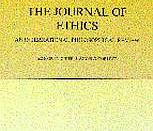The ethics of bureaucracies are often critised, although the aim of a bureaucracy is one of merit this is often compromised. It is the division of labour and hierarchical structure of a bureaucracy that creates an environment where morals and ethics of an organisation are easily corrupted. The division of labour separates the means from the ends, and thus able to void the action of any consequential meaning. Hierarchy within a bureaucracy survives on authority, and obedience to this authority. When under authority, a person no longer regards themselves as ethically responsible for their actions. In this type of environment extreme immoralities such as the holocaust were able to occur. However, it is not bureaucracy that created immorality and unethical behaviour, we did. Humans are not naturally ethical and moral beings, that is why reservations of an 'entrepreneurial government' have been put forward. It is of concern, that without the rules and regulations of bureaucracy, the societies needs would be neglected.
A bureaucracy aims to be objective in its treatment of members. In order to do this, it must establish a 'bureaucratic morality', independent from individual ethical concerns. It must do this as ethics are subjective, and cannot be applied universally.
Ethics is the "study of moral principles or values that determine whether actions are right or wrong and outcomes are good or bad"( Mc Shane & Travaglione, 2003). Ethics can only be viewed in a subjective light; managers are often faced with ethical choices within organisations in which they forced to mutually consider their personal ethics and corporate priorities. The question of ones ethics will often be raised when one is in a position of power. Bureaucracies involve hierarchies; this gives power to those in higher positions over those in lower positions. Thus, the question of ethics must be...


